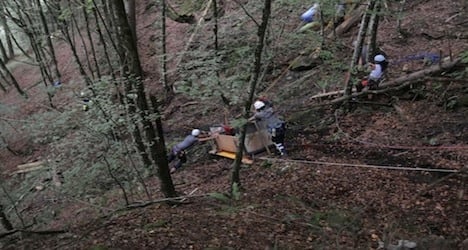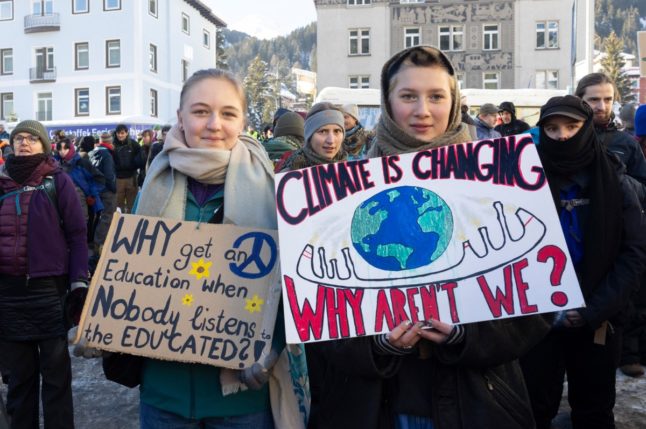In a statement, the cantonal police said they had arrested the man after receiving contradictory statements from several people questioned.
The accident occurred on Saturday at Alp Bärlaui in Innerthal, when a wooden gondola carrying the family plunged 30 metres into the forested mountainside.
Police said the car came off the cable 900 metres from its top station at Alp Bärlaui.
The 38-year-old Swiss father and 31-year-old Canadian mother were thrown from the gondola and died of their injuries, police said.
Their one-year-old baby daughter was seriously injured but is out of danger.
The baby's life was saved by the fact that she was being carried in a rucksack, and by branches and bushes that stopped her fall.
Police said the family lived abroad and were in the region on holiday.
Transport gondolas make it easier to move supplies to and from mountain chalets and pastures, and it is illegal for them to carry people.
Police said the investigation into the cause of the accident was continuing.



 Please whitelist us to continue reading.
Please whitelist us to continue reading.
Member comments